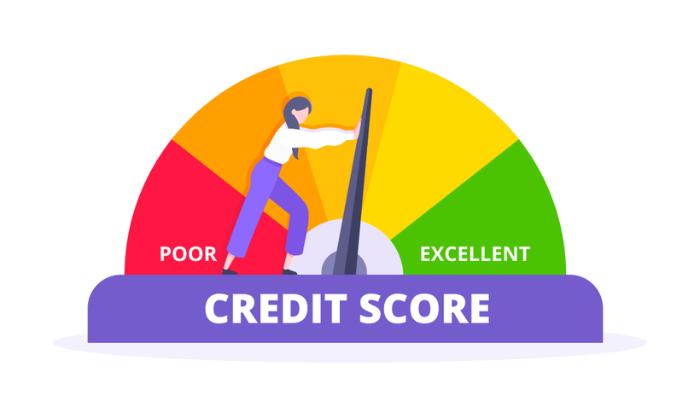Tips for Getting Approved for a Loan
In a world where access to credit is essential for realizing dreams and facing emergencies, having a good credit history is crucial.
Advertising
Whether it’s financing a car, purchasing a home, or even applying for a credit card, a healthy credit score can open doors and provide financial opportunities.
Advertising
In this comprehensive guide, we’ll explore effective strategies for improving your credit score, understanding the importance of credit history, and increasing your chances of loan approval.
How to Improve My Credit Score?
A good credit score opens doors to various financial opportunities, from obtaining low-interest loans to securing favorable mortgage rates. However, achieving and maintaining a high credit score requires careful financial management and discipline.
Advertising
In this section, we’ll explore effective strategies to improve your credit score and enhance your financial health.
- Pay Your Bills on Time: One of the main factors influencing your credit score is your payment history. Make sure to pay your bills before the due date to avoid delays and defaults.
- Reduce Your Debts: Keep your credit balances as low as possible relative to your limits. This demonstrates financial responsibility and can improve your score over time.
- Avoid Opening New Credit Accounts: Opening several credit accounts in a short period may be interpreted as a risk signal by credit bureaus. Aim to maintain a limited number of accounts and avoid unnecessary credit inquiries.
Loans with Bad Credit

If you have a challenging credit history, obtaining approval for a loan may seem difficult. However, there are options available for individuals with bad credit:
- Secured Loans: By offering an asset as collateral, such as a vehicle or property, you can increase your chances of loan approval.
- Co-Signer Loans: Having a co-signer with a good credit history can help secure loan approval, as the lender considers the co-signer’s credit history when making the loan decision.
Importance of Credit History
Your credit history serves as a critical measure by which lenders evaluate your creditworthiness. It offers insights into your past financial behaviors, providing lenders with valuable information about your ability to manage debt and fulfill repayment obligations.
As a reflection of your financial responsibility, your credit history plays a pivotal role in shaping lenders’ decisions regarding loan approvals, interest rates, and credit limits.
Therefore, cultivating a positive credit history is essential for securing favorable lending terms and achieving your financial goals.
Building Credit Quickly
Whether you’re just starting your financial journey or rebuilding your credit, there are ways to build a positive credit history quickly:
- Secured Credit Cards: These cards require a security deposit, usually equal to the credit limit. By using the card responsibly and making timely payments, you can gradually build credit.
- Secured Loans: In addition to traditional secured loans, there are options like loans secured by crypto assets, which can be an effective way to build credit for those with little or no history.
Avoiding Loan Rejection
Being rejected for a loan can be discouraging, but understanding the reasons for rejection can help you take steps to improve your chances of future approval:
- Check Your Credit Report: Review your credit report for errors or outdated information that may be negatively affecting your score.
- Correct Discrepancies: If you find errors in your credit report, contact the credit bureau to correct them as soon as possible.
Loan Application Analysis
When applying for a loan, it’s essential to understand how lenders evaluate your application:
- Income and Employment: Lenders typically consider your income and employment stability when assessing your ability to repay the loan.
- Debt-to-Income Ratio: They also look at your debt-to-income ratio to determine if you can safely take on more debt.
Increasing Approval Chances
In addition to improving your credit and understanding how lenders evaluate your application, there are other steps you can take to increase your approval chances:
- Offer a Larger Down Payment: By making a sizable down payment on a loan, you demonstrate your commitment to the loan and reduce the lender’s risk.
- Get a Pre-Approval Letter: A pre-approval letter shows sellers that you’re a serious buyer and can give you an edge in negotiations.
Credit Analysis for Loans

Lenders use various information when evaluating your loan application:
- Credit Score: Your credit score is a crucial factor in the loan decision. The higher the score, the better your chances of approval and the better loan terms you can obtain.
- Payment History: Your previous payment history, including any late payments or defaults, can negatively impact your credit score and approval chances.
Loan Approval with Limited History
If you have a limited credit history or no history at all, it may still be possible to get approval for a loan:
- Secured Loans: As mentioned earlier, loans secured by assets such as vehicles or deposits can be an option.
- Co-Signer Loans: Having a co-signer with good credit can help you get approval for a loan, as the lender considers the co-signer’s credit history.
Interpreting Credit Reports
It’s important to understand what’s included in your credit report and how to interpret the information:
- Personal Information: Your credit report will include details such as your name, address, social security number, and current employer.
- Payment History: It will also show your previous payment history on loans and credit accounts, including any delinquencies or late payments.
By understanding your credit report and implementing strategies to improve your score, you can increase your chances of getting approval for loans and successfully achieve your financial goals.
Always remember to maintain a healthy relationship with credit and use loans responsibly to avoid financial difficulties in the future.





